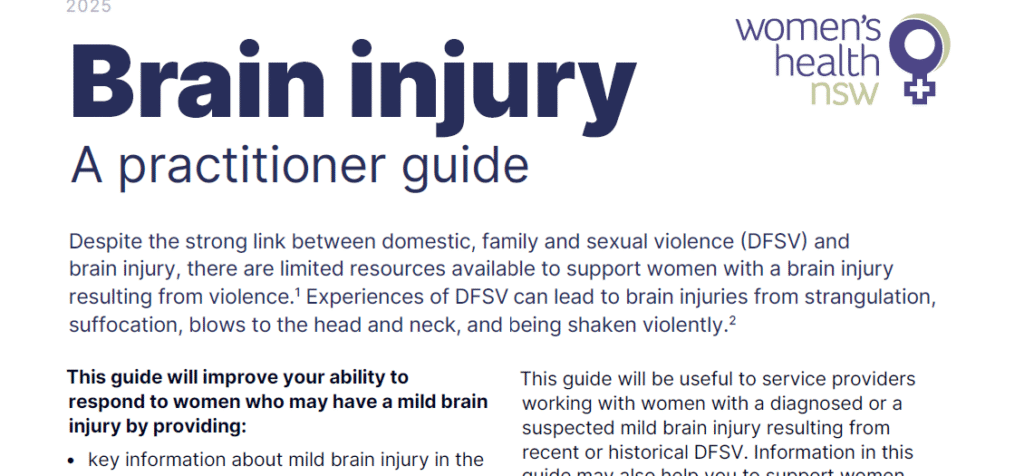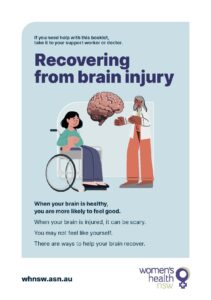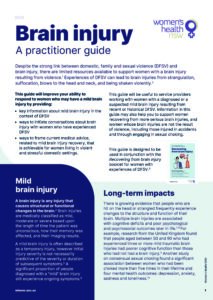
Experiences of domestic, family and sexual violence (DFSV) can lead to brain injuries from strangulation, suffocation, blows to the head and neck, and being shaken violently. Despite the strong link between DFSV and brain injuries, there remains limited information to support women who have a brain injury resulting from violence. This practitioner guide is designed to support service providers to contextualise medical information about brain injuries for women living in violent and stressful domestic settings.
This practitioner guide is designed to be used in conjunction with the Recovering from brain injury  booklet for women with experiences of DFSV. It will improve your ability to respond to women who may have a mild brain injury by providing you with:
booklet for women with experiences of DFSV. It will improve your ability to respond to women who may have a mild brain injury by providing you with:
- key information about mild brain injury in the context of DFSV
- ways to initiate conversations about brain injury with women who have experienced DFSV
- ways to frame current medical advice, related to mild brain injury recovery, that is achievable for women living in violent and stressful domestic settings.
This guide will be useful to service providers working with women with a diagnosed or a suspected mild brain injury resulting from recent or historical DFSV. Information in this guide may also help you to support women recovering from more serious brain injuries, and women whose brain injuries are not the result of violence, including those injured in accidents and through sexual choking.
Suggested citation
Women’s Health NSW. (2025). Brain injury: A practitioner guide. WHNSW. https://www.itleftnomarks.com.au/resources/brain-injury-a-practitioner-guide/
Downloads (Click on the images below)
